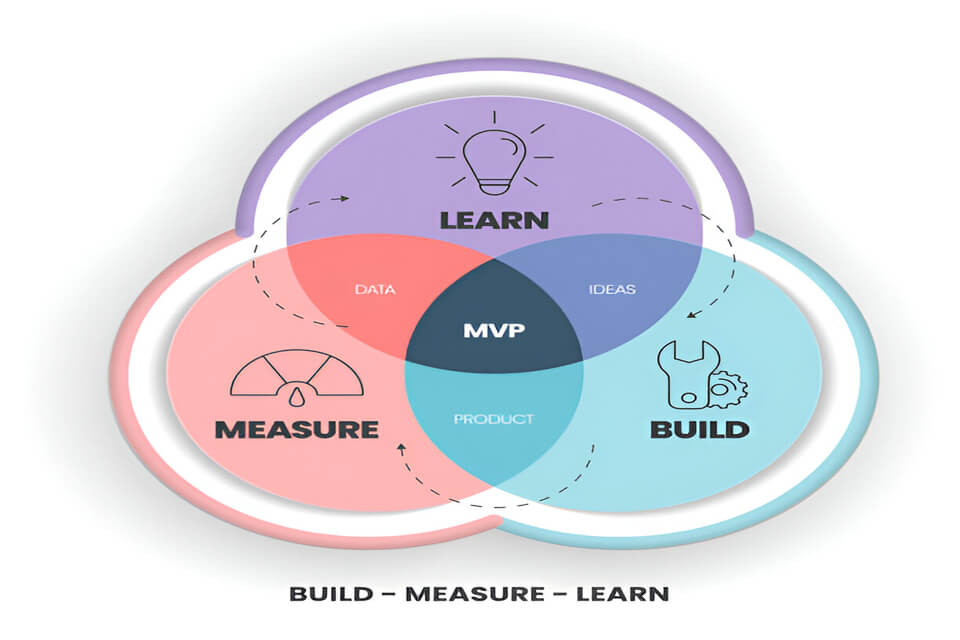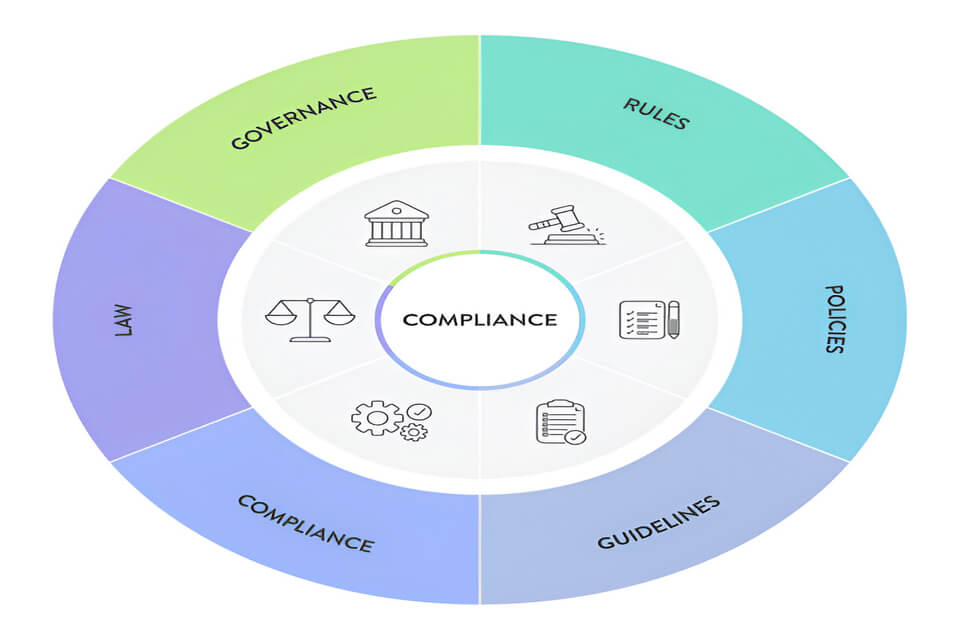Introduction
Starting a tech startup in Africa opens doors of opportunities, especially in an ever-evolving industry. With Africa’s digital landscape rapidly expanding, there is a strong need for innovation. Whatever field of technology you choose – fintech or e-commerce, it is best to come up with a strategic plan for entering the tech industry
But how can you transform a concept into a booming business? This guide will walk you through the essential steps to successfully start a tech startup in Africa, from market research to execution, helping you confidently navigate the African startup ecosystem.
Understanding the African Tech Landscape
Overview of the Current Tech Ecosystem
Africa has one of the fastest-growing tech industries. This growth results from its young, tech-savvy population that has adopted the internet and widespread mobile penetration. These factors have laid a solid ground for technological innovation and entrepreneurship. The rapid internet growth has provided opportunities in the digital space in fintech and e-commerce, further expanding these areas.
For aspiring tech entrepreneurs, Africa offers immense growth and impact. The continent’s various markets and growing demand for technological solutions make it an exciting prospect for new businesses.
Key Trends Driving Tech Growth
Africa’s technological landscape has advanced to the point where emerging tech firms can thrive. Mobile money systems, like M-Pesa, have transformed the financial space, making launching a technology firm in Africa more straightforward. Digital health innovations have addressed healthcare shortages, and the ecommerce world keeps growing as internet usage spreads. Another trend is incorporating Artificial Intelligence into the corporate world through its role in generating data-driven insights. Blockchains also help to provide safe and transparent transactions.
These trends are transforming these industries and enabling innovations from emerging startups in the African market. Tech entrepreneurs in any sector can reshape not just Africa but beyond.
Major Tech Hubs and Hotspots
Several African cities stand out and easily attract tech entrepreneurs. They are:
- Nairobi, Kenya, is best for tech firms looking into the fintech industry. The city is known for fintech innovations and mobile money platforms. It is home to a large number of fintech startups.
- Lagos, Nigeria, is a hub for e-commerce and digital payment services fueled by a young, tech-savvy population. It is Africa’s leading city for electronic commerce (eCommerce) orders.
- Cape Town, South Africa, has a robust ecosystem for technology creation, particularly in software and mobile apps, cybersecurity, data science, and artificial intelligence. The city is a prominent tech hub in southern Africa, supported by a thriving startup culture.
- Cairo, Egypt, specializes in digital transformation, e-commerce, FinTech, AI, machine learning, education technology, and e-health. Cairo’s IT sector is rapidly increasing, making it Egypt’s fastest-growing sector, owing to factors such as the surge in startup formation and government support.
Each center has distinct advantages, making them ideal for founding a tech firm in Africa. Whether it is fintech in Nairobi or e-commerce in Lagos, these cities are at the forefront of Africa’s technological transformation, with numerous prospects for innovation and growth.

Success Stories of African Tech Startups
Flutterwave, Jumia, and Andela are examples of African Tech firms that have successfully transformed the continent’s digital market.
Flutterwave has transformed digital transactions in Africa. It has made digital payments in Africa easier by allowing easy payments across borders. It has also made financial services in Africa much simpler.
Jumia, Africa’s e-commerce giant, has provided a platform for Africans to order and shop online, leading to growth in digital retail. It has revolutionized e-commerce in Africa by expanding its online marketplace.
Andela trains and connects top talent with global digital businesses, increasing local economies and driving innovation in the tech sector, bridging Africa’s tech skills gap.
These startups became successful by seeing problems in the African digital space and creating solutions. They also took advantage of the local market, attracting global investors. The success that these firms have recorded serves as motivation for emerging tech firms.
Identifying Market Opportunities in Africa
Assessing Unmet Needs and Market Gaps
In recognizing market opportunities in Africa, unmet needs and market gaps must first be assessed. What sector has market gaps, and how can te tech industry solve them? These are mainly about critical sectors like healthcare, agriculture, financial services, and education.
Key Market Gaps:
- Healthcare: lack of access to quality medical care, diagnostics, and medical supplies.
- Agriculture: inefficient supply and archaic farming techniques and equipment.
- Financial services: lack of access to standard financial institutions like banks or credit facilities, international exchanges, and digital payments.
- Education: lack of access to e-learning resources and digital skills development.
Technology solutions can recognize these difficulties and provide creative solutions to close these gaps. Concentrating on these sectors would promote continental growth and provide investors with profitable opportunities.
Understanding Diverse Consumer Behaviors and Preferences
To effectively access the global market, it is essential to understand the cultural, economic, and linguistic differences that shape customer behavior. These differences determine customers’ interaction with products; understanding them would help create a universal approach or solution. This approach would also help create customized products and strategies to meet specific needs.
- Cultural factors: These influence consumer preferences, depending on their cultural values and habits. For example, a technological innovation in one country might not be relevant in another because of their cultural differences.
- Economic differences: This influences the purchasing power of consumers. Varying income levels affect consumer spending. In emerging areas, tech startups must consider economic differences before putting a price tag on their products.
- Language disparities: Language differences affect communication and how consumers respond to a product’s interface. The product should be localized for easy use. There should also be options for preferred languages before launching these products.
A well-tailored and localized strategy would help to address these factors. Every aspect of the products, including customer service, should align with local preferences, increasing the potential for the success of African tech startups globally.
Evaluating High-Potential Industries
Assessing industries with high growth potential entails studying various sectors and identifying those expected to have a significant impact due to technological discoveries and market demands. Industries like finance, agriculture, and clean technology have shown potential.
Why These Industries?
- Financial Technology (FinTech): The introduction of digital payments, online lending, and trading has disrupted traditional finance. It has made digital transactions easier and faster for consumers.
- Agricultural Technology (AgriTech): Technology has introduced Precision farming, crop monitoring, and biotech innovations. These technological solutions also address issues of global food security
- Clean Technology (CleanTech): Environmental issues are addressed by carbon capture technologies, sustainable manufacturing practices, and renewable energy.
Apart from their problem-solving abilities, they offer a substantial return on investment and possess futuristic qualities, making them crucial for energizing IT firms’ expansion and financial success.
Conducting Market Research and Competitor Analysis
A fundamental step before launching a tech startup is conducting thorough market research and competitor analysis. The steps include:
- Surveys: Start with surveys to understand market needs and demands. It would assist you in identifying areas that require attention or improvement. The questionnaires may be hybrid, available online and in print.
- Focus groups: Use focus groups to interact directly with target customers to understand consumer behavior. Through these sessions, you can acquire insights that will help improve your product. You can find unmet requirements and preferences by watching conversations and interactions to help ensure your startup’s products and services appeal to your target market.
- Competitor benchmarking: This is a study of rivals and industry peers. It would help you recognize their strengths and gaps, leaving room for your products to improve on these gaps.
Building a Viable Tech Product for Africa
Designing Products Tailored to Local Needs
For tech startups in Africa, creating customized products means a deep understanding of the challenges that must be met. Solutions must solve problems like poor internet connection, limited financial services, etc
Products with a few offline functions would allow consumers in low-bandwidth areas to access a few features. With the high mobile penetration rate in Africa, mobile-first design is essential. Alternative payment mechanisms, such as mobile money, are viable for startups as they are more common and efficient than traditional banking.
Tech businesses may create scalable products that appeal to local customers by concentrating on these needs, guaranteeing their relevance and commercial success.
Leveraging Mobile Technology
One of the most brilliant strategies for a new digital company to join the market is to go mobile first. This is because smartphone usage in Africa is among the highest globally. Startups can reach a large, youthful, tech-savvy audience with easily accessible products by concentrating on mobile technologies. This tactic enables these businesses to enter the African digital market and addresses the issues of low PC usage and dependable internet access.
African consumers, who view mobility as a crucial component of digital success, primarily rely on their mobile devices for nearly all digital activities, including banking, shopping, and communication. Developing effective, user-friendly mobile apps that function flawlessly, even in places with weak networks, should be a top priority for tech companies.
Developing a Minimum Viable Product (MVP)
Developing a Minimum Viable Product (MVP) is critical to test ideas properly. A Minimal Viable Product (MVP) is a beta version with just enough features to be helpful to early adopters, who can then provide feedback on future product development.
You can develop an MVP with these steps:
- Begin by outlining your main problem and focusing on a basic solution to fix it.
- Create a minimal version of your product that just includes the most necessary features.
- Use low-cost development tools and platforms, such as open-source software and cloud-based services.
- Engage early users in your target market to obtain input and improve the product.
This method lets you validate your idea with few resources and make informed adjustments. Ensure that the MVP is scalable and customizable depending on the users’ responses

Scaling Tech Solutions
The first step in scaling tech solutions in Africa is to adjust your product to changing market conditions. Considerations include local needs and desires, as well as different internet access. To increase market reach and reputation, startups should establish positive business relationships with local firms. User input, industry trends, and other data-driven analyses should all impact decision-making and help you consistently improve your product. Leveraging local networks and insights ensures that your solution is relevant and scalable across the continent.
By combining these techniques, tech entrepreneurs can effectively grow their impact and success in African technology.
Navigating the Legal and Regulatory Framework
Understanding Local Business Laws and Regulations
African digital entrepreneurs should familiarize themselves with local company legislation to avoid legal complications. The firm should focus on the following elements.
- Registration Requirements: Register your startup with the proper agencies. Consider obtaining a business license and providing the necessary documentation. Presenting these licenses would increase investor and consumer trust.
- Taxation: To avoid compliance concerns, familiarize yourself with local tax legislation, including tax rates and VAT duties.
- Business Permits: Depending on the industry, you may require special licenses and permits to conduct lawful operations.
Obeying these rules and regulations would help you avoid legal issues. Staying current on important local laws might assist you in developing credibility with investors and consumers.
Compliance with Data Protection and Privacy Laws
Data protection and privacy rules must be followed strictly by African internet startups. Each country has its own data protection rules, which must be properly understood depending on the firm’s location. Regulations such as Nigeria’s NDPR (Nigeria Data Protection Regulation) and South Africa’s POPIA (Protection of Personal Information Act) impose stringent requirements for handling personal data.
Complying with these rules guarantees that startups do not violate consumers’ rights or privacy. It would also assist to avoid legal penalties and increase consumer trust. Implementing robust data security measures, performing frequent data audits, and providing staff training on data privacy are all critical actions that must be performed. By prioritizing data protection and privacy laws, tech startups can easily avoid legal battles and create safe consumer product use.
Intellectual Property Protection
Protecting your technological inventions for success in Africa’s developing market is vital. Intellectual property protection requires using trademarks, patents, and copyrights to protect your innovations. Trademarks protect your brand identification, preventing the creation of counterfeit products using your brand name. Patents protect your company’s innovative creations from imitation, whereas copyright protects original works. Understanding Africa’s legal structure is critical for preventing intellectual property theft. Register your innovations and upgrade your protection as your firm grows. This will help to secure your competitive advantage and attract investors who value robust intellectual property initiatives.
Managing Cross-Border Operations
One of the issues technology entrepreneurs have is figuring out how to operate across borders. Key challenges include managing currency risks, which can impact financial stability and profitability. Understanding import/export regulations is critical for efficient product transit; however, goods movements must adhere to local laws to prevent legal issues. Another area of emphasis is comprehending regional legal needs, such as data protection laws and tax restrictions. Engaging experts in local laws, exploiting cross-border trade agreements, and putting procedures that carefully adhere to regulations are all effective tactics.
By solving these issues, emerging digital businesses can improve their operations and gain a competitive advantage in the diverse African market.

Securing Funding for Your African Tech Startup
Exploring Funding Options
African digital entrepreneurs can finance their growth and innovation through various channels. Local venture capital gives financial support in specific locations, whereas international venture capital does it on a broader and larger scale. Impact Investors are more interested in companies encouraging social and environmental growth while adhering to sustainable development goals. Accelerators provide mentorship, funding, and networking opportunities for rapid company development. Government grants also give funding to support innovative ideas and innovations.
Startups might look at these methods for accessing required resources in the tech industry.
Connecting with Local and International Investors
Building relationships in the tech industry is crucial, as most businesses eventually need investors and connections. Attending tech conferences and events is one of the most effective methods to create these ties. In this environment, networking with potential investors is made possible.
Another strategy is to use social media channels to promote inventions and build online relationships. You can join virtual tech groups to brainstorm ideas and collaborate on projects. Participate in pitch competitions to demonstrate your innovation and gain visibility for your digital firm. Participation will also expose the startup to new ideas. Take advantage of these possibilities to grow a strong network and community.
Pitching Your Startup Effectively
Focus on these elements to pitch your tech startup in Africa effectively:
- Traction: Use growth data and user interaction to demonstrate demand.
- Market potential: Show the projected size and growth of your target market. Highlight the significant opportunities that are presented when investing in your tech company.
- Team Strength: Showcase your team of experts and their experience. Emphasize how capable they are in executing the company’s vision.
Create a presentation that includes all these features to capture investor interest and trust. Use compelling images and facts to back up your claim about your startup’s growth prospects. Make thorough research for your presentation and be prepared for any queries that may come your way. Focusing on these crucial areas will allow you to develop an enticing proposal for investors.
Government and NGO Support Programs
African technology startups can benefit from a variety of support initiatives. Examples include:
- The Tony Elumelu Foundation which funds, advises, and trains entrepreneurs.
- Google’s Launchpad Accelerator provides resources, guidance, and access to its network for companies.
- Local innovation programs, such as the African Development Foundation’s awards, provide early-stage enterprises with funding and technical assistance.
These projects seek to promote innovation and scalability in the technology sector. By exploiting these resources, African startups can access critical tools and knowledge to expand their firms and compete globally.
Frequently Asked Questions (FAQs)
- What are the first steps to launching a tech startup in Africa?
Identify a market need, create a business plan, and get funds.
2. What are the main challenges for African tech startups?
Limited infrastructure, regulatory constraints, and access to competent talent are all significant challenges.
3. How crucial is market research?
It is critical to understand client wants and competitors.
4. What legal requirements should I consider?
Register your business, understand tax rules, and follow local regulations.
5. How can I create a successful team?
Hire qualified professionals and promote a collaborative environment.
Conclusion
To launch a tech firm in Africa, prioritize finding market needs, obtaining capital, and negotiating local barriers. Like anywhere else, the continent offers enormous potential for startup ecosystems, but understanding the unique challenges is crucial. Consider some real-world issues your digital solution can address to give you a competitive edge.
To ensure success, conduct extensive market research, follow all legal regulations, and form a strong team. Understanding these components will assist you in turning your digital idea into a successful firm in Africa’s dynamic market.



